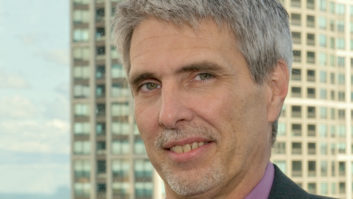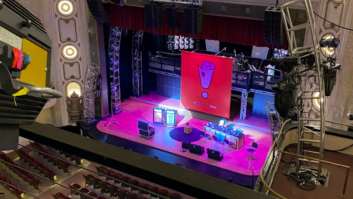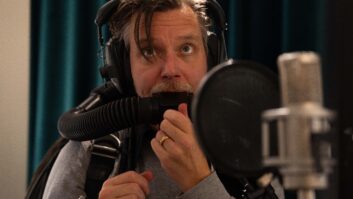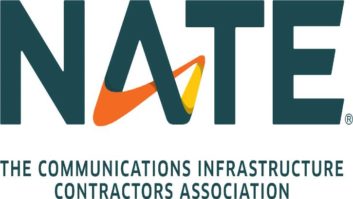As I rotated off as a voting member of the SBE board of directors, I asked outgoing President Vincent Lopez for an opportunity during our fall meeting to share some observations from my time near and on the board, and as president. This commentary reflects the message if not the actual words read into the meeting minutes.

I’m extremely happy to see the large number of new faces joining the SBE board of directors. A vibrant, changing leadership is vital to the health and long-term survival of the SBE. Changes like this keep the society relevant and responsible to our chapters and members. I personally thank our board members and officers for stepping up.
In the past years, the SBE began to address some perceptions that were discussed at the last national strategic planning meeting and demonstrated during a later online member survey, including a disturbing perception that the SBE was disconnected from the individual member.
More than one national board member has observed a perception that SBE was about “BAS, EAS, frequency coordination and nothing else.”
We’ve started some bold efforts to make changes in recent years to concentrate our limited volunteer time, money and people on efforts that have attributable and, ideally, direct member benefit, and also to focus on battles the SBE could actually win … and in doing so remind our members and our industry just how vital the SBE is to all of us.
The turning of this ship has been slow and sometimes painful. In the process I have made enemies of some people who were my inspiration, my teachers, my mentors, both in the business and in the SBE. This pains me greatly because these people have been close and important friends. Perhaps this is the price of helping the SBE achieve what its board chose to do and to ensure the survival and success of the society. Perhaps I will have to resign myself to that consequence.
Slow change
The society started well before 2007 improving our public and industry face through increasing the level of member communication and improving the sophistication of our marketing efforts in order to educate our members and our industry about what we truly do.
Unfortunately perceptions change slowly. It’s going to take years of educational programs, member outreaches and programs to make the impression stick. It will take all SBE members, not just the faithful, to be the evangelists of what we are about, the purposes written on the back of our membership cards: supporting, educating and certifying broadcast engineers.
As our new board considers the society’s current efforts and looks at new projects, I urge them to be careful and suspicious. Just because something should be done, or someone important asks, or even if we might be good at something, it doesn’t mean we should be responsible for it.
As broadcast engineers we often are asked to do things for which we should not be responsible. The effective engineer doesn’t take on someone else’s tasks to the detriment of his own. The society must be run this way. We must find that balance between providing “customer service” while making sure responsibility remains in the appropriate place and with the right people.
And never think that “because we’ve always done it” is a suitable reason to do anything. Our board members must make their own decisions based on what our members want and need. We as members must count on that.
The SBE is responsible, above all, to its members — not even to broadcast engineering or to the industry, except through the excellence and education of its members. We know the best way to benefit our profession and our industry is to fill both with strong, educated, experienced, engaged and involved SBE members. Through a succession of priorities — SBE members first, then broadcast engineers — we will improve our industry, the industry of mass media.
Don’t seek to maintain a status quo, or try to slow or stop an inexorable or impending change, in the society or our industry. That is the path to irrelevance and ultimate loss, as many, many industries have learned. Our best purpose is not to impede change but to prepare our members to exploit it and build a better industry through informed, active participation.
Our job
As much as we can see the problem and desire to solve it, our job as a society is not to find the next generation of engineers, to ensure our employment or even to attract people to the industry.
The SBE’s role is to provide exposure, support, education and a measure of the skills for the people who are in the industry.
We must certainly work to preserve the knowledge within our ranks by creating opportunities for mentoring and to sharing experience with new engineers … but the industry will change, and its appetite for talent and skill sets will too.
Business puts its own value on the people that make it go. Be that good or bad, it’s a truism in a capitalist economy. The SBE just needs to be the place technical media professionals come to learn, share and measure their abilities, and a place for the industry to find those professionals to solve their unique media engineering problems.
As the society takes on new challenges, remember this: We are volunteers.
Look at the list of the board of directors, committee and chapter chairs. Everything that the national organization does or will do is done by these people.
The seven professionals of the SBE national office staff, John Poray, Megan Clappe, Kimberly Kissel, Hannah Trowbridge, Scott Jones, Debbie Hennessey and Carol Waite, will amplify the volunteer efforts 10-, 100-, 1,000-fold, but the purpose of the national staff is to run the business of the society.
It is the job of the dedicated volunteers to guide the efforts and, more importantly, make progress in the strategic objectives of the SBE. If there is an objective that is important for society to achieve, it is yours as volunteers to make it happen.
During the summer of 2012, President Ralph Hogan is planning another national strategic planning meeting. SBE chapter leaders and concerned members should plan to attend and help set the course for the society for the next 5 to 10 years. If you cannot make the trip, at least make your thoughts known to the leaders of the national society. Contact either one of the directors or officers you may know or reach out to the board member assigned as a liaison to your chapter. All are surprisingly accessible. Their information is on www.sbe.org.
Thanks all for the many years as one of the leaders in this society. I am proud and humbled to have been a part of this.
Barry Thomas, CPBE CBNT, was president of the Society of Broadcast Engineers in 2007–2009. He chairs its Government Relations Committee.












